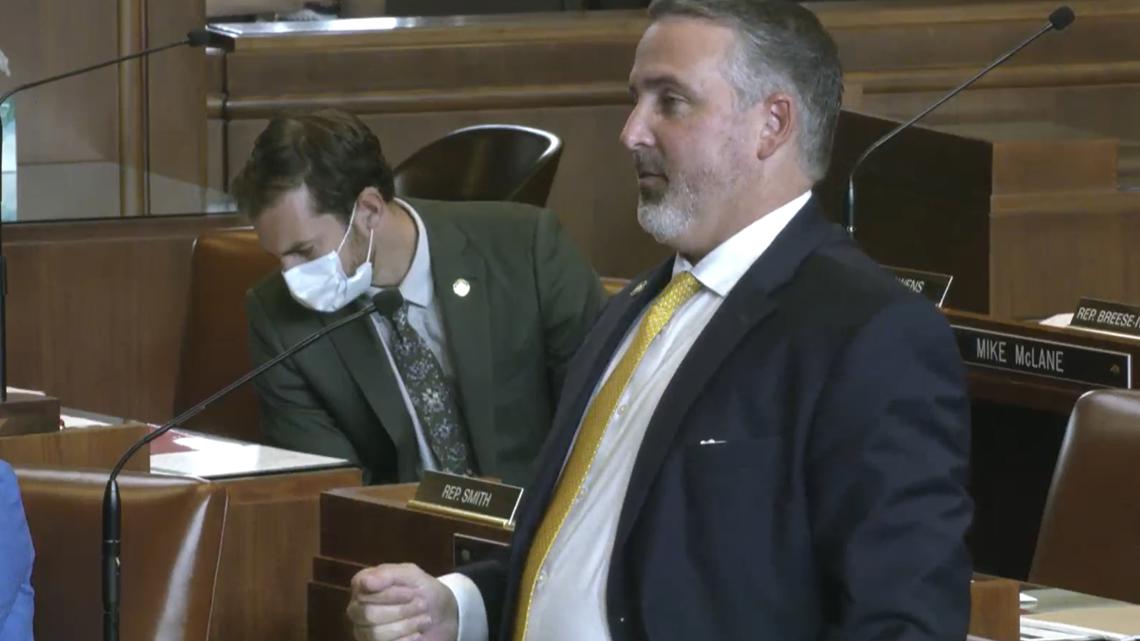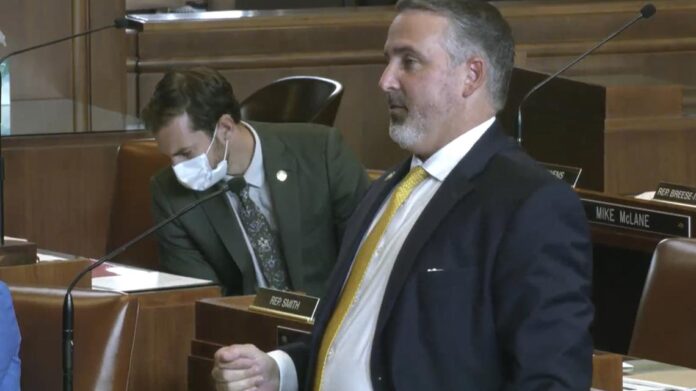
State Rep. Cyrus Javadi of Tillamook announced Friday that he has registered to run for reelection next year as a Democrat rather than a Republican.
SALEM, Ore. — Oregon State Rep. Cyrus Javadi announced Friday that he has switched his party affiliation from Republican to Democrat. The move comes just days after Javadi broke with House Republicans on a key vote, siding with Democrats to pass a transportation funding bill.
Javadi represents the coastal House District 32, which is centered on Tillamook. He was first elected to the Oregon House in 2022 and was reelected in 2024, running as a Republican both times. In a news release, Javadi said he made the switch ahead of a Thursday deadline for incumbent candidates seeking reelection in 2026 to specify their party affiliation.
“Being an elected leader has never been about party loyalty to me, it’s been about how I can best fight for our community and our state,” he said in a statement. “Like the vast majority of my constituents, I support our constitution and the right to freedom of speech, support the rule of law, believe we have a moral obligation to treat people fairly and with respect, and believe that as elected leaders it’s our job to show up and govern, for the sake of ordinary people, not the interests of the powerful and well-connected.
“Too many extreme politicians in today’s Republican Party have abandoned these values, which is why I made the decision to join the Democratic Party,” he continued. “I’m not leaving my principles, just aligning with people who still share them, still show up to govern, and are more interested in bipartisan solutions than obstruction. My loyalty is first and foremost to the people of my district and I won’t waver from my values in order to fit into a partisan mold.”
Javadi made headlines earlier this week when he became one of only two House members — and the only Republican — to break ranks on what was otherwise a party-line vote for a key transportation funding bill.
Oregon law requires a three-fifths vote for any legislation that raises taxes, and Democrats currently control the exact minimum number of seats in each chamber. Democratic Rep. Annessa Hartman broke with her party and voted against the bill, meaning it would’ve fallen short of the threshold if Javadi hadn’t split with Republicans and voted for it, essentially canceling out Hartman’s defection.
Speaking ahead of the vote, Javadi said it’s understandable that Oregonians will be unhappy about the bill’s six-cent gas tax hike and other fee increases, but that the bill still represented a necessary step to prevent the state’s transportation system from degrading further.
“Colleagues, this isn’t just about six cents,” he said. “This is about whether Oregon stays connected, or whether we let the arteries of our state slowly collapse. I believe we must choose connection. I believe you must choose responsibility, so I’ll vote yes. We can pay a little more now at the pump or we can pay a lot later in lives, wages and lost opportunities.”
It isn’t the first time Javadi has been at odds with House Republicans on a prominent vote. During the regular session earlier this year, Democrats passed a bill that prohibited local school districts and boards from banning books from their libraries based on the topic or author of a book, in response to a series of local bans both in Oregon and across the country, often aimed at LGBTQ-related content.
The bill faced intense opposition from Republicans, and Javadi became the lone House Republican to support the bill when it came up for a floor vote. Speaking ahead of the vote, he said his decision was due in part to his son, who is gay.
“Like a lot of kids who realized they’re different before they’re ready to say it out loud, he went looking for stories,” Javadi said. “Not flashy ones, not political ones, just something that helped him understand what he was feeling; something that reminded him he wasn’t the only kid trying to navigate this phase of his life.”





